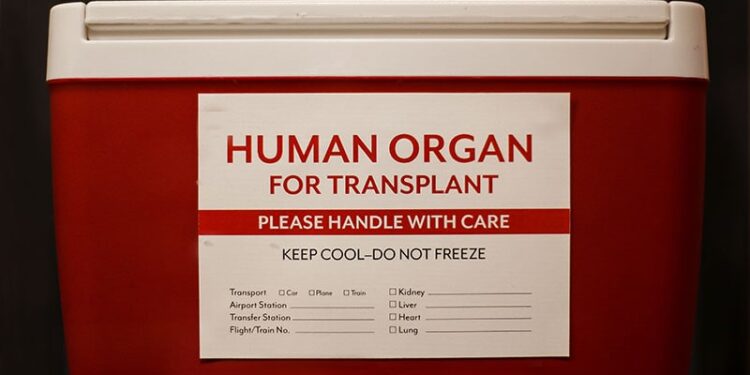In late May, the Centers for Medicare & Medicaid Services (CMS) released its latest performance report for the nation’s 55 Organ Procurement Organizations (OPOs), the nonprofits responsible for recovering organs from deceased donors.
The 2025 report shows notable improvements from the 2003 assessment with the number of lowest-performing Tier 3 OPOs declining from 24 (42%) to 10 (18%), and the number of top-performing Tier 1 OPOs doubling to 30 (54%).
However, a plan by CMS to begin revoking the certification of Tier 3 OPOs following the 2026 report has heightened an ongoing debate about the reports’ accuracy, fairness, and repercussions.
The Report
CMS began ranking OPO performance in 2022 as part of a larger effort to modernize the nation’s transplant system following years of criticism that it was inequitable and inefficient.
Each annual CMS assessment uses data from 2 years prior (eg, the 2025 assessment reflects 2023 data). CMS then applies two metrics to measure OPO performance:
- Donation rate: the percentage of potential donors from whom at least one organ was transplanted
- Transplantation rate: the number of transplanted organs as a percentage of potential donors
Potential donors are defined as hospital patients ≤ 75 years whose deaths are compatible with donation. CMS then compares each OPO against the prior year’s national data. The top 25% are designated Tier 1, those below the prior year’s median are placed in Tier 3, and those in between are assigned Tier 2.
To date, CMS has never revoked an OPO contract — but that will change with the 2026 performance assessment. At the end of the current 4-year contract cycle next year, all Tier 3 OPOs will be decertified and higher-performing OPOs will be able to bid for their contracts. Tier 2 OPOs will also have to compete with other interested OPOs to keep their service areas.
Disputing the Metrics
The improved OPO performance in the 2025 report is “the result of greater transparency and accountability associated with the current outcome measures,” a CMS spokesperson told Medscape Medical News.
The new outcome measures “obviously would light a fire” under OPOs striving to improve, said Jeff Trageser, president of the Association of Organ Procurement Organizations (AOPO) and the executive director of Livesharing, a consistently Tier 1 OPO based in San Diego.
Many OPOs, he noted, have been investing heavily in advocacy to convert eligible deceased donors into actual donors, tailoring donation strategies to their communities, and expanding organ offers to distant transplant centers to reduce the number of discarded organs.
AOPO and its 47 member organizations have raised multiple objections. Trageser called CMS’ performance assessments seriously flawed and warned they could penalize OPOs making steady progress.
OPOs shouldn’t be held accountable for transplant numbers as hospitals decide which organs to accept or reject, Trageser said.
Sean Fitzpatrick, chief public affairs officer at New England Donor Services (Tier 2), argued in a recent statement that CMS’ methodology unfairly penalizes large OPOs. A recent simulation study published in American Journal of Transplantation made a similar claim, suggesting the system “systematically identifies larger OPOs as underperforming.”
But CMS disagrees, noting through its spokesperson that “both large and small OPOs have moved among performance tiers [from year to year], indicating that success is driven by operational effectiveness, not size.”
Regional Differences a Concern
David DeStefano, president and CEO of We Are Sharing Hope SC in Charleston, South Carolina, said his OPO has boosted donations and transplantations by 30% since 2017 through community partnerships and better coordination with transplant centers. Yet the OPO remains in Tier 3, which he attributes to higher rates of diseased, unusable organs in his largely rural service area that lacks access to health care. CMS should risk-adjust the performance metrics to reflect geographic differences in sociodemographic factors, he said.
The CMS spokesperson noted that “while population differences exist across geographic areas, there is no indication these differences would impact the donor potential resulting in a disadvantage to one OPO compared with other OPOs.”
Approaching Decertification
In 2026, Tier 3 OPOs can appeal their decertification. Their contracts will remain in effect through January 31, 2027, “to allow time for appeals and prevent disruption to organ donation services,” the CMS spokesperson said.
But disruption is unavoidable, said Trageser.
“Decertification will lead to chaos and fewer organs available for transplant,” he said. Incoming OPO leadership would spend valuable time managing the logistics of taking over a service area instead of on “their core mission of working with families in a time of crisis to advocate for donation and then getting those organs allocated.”
Staff departures at decertified OPOs could further erode relationships with transplant hospitals, said AOPO CEO Steve Miller.
Tier 1 OPOs Eye Expansion
Matthew Wadsworth, president and CEO of Life Connection of Ohio (Tier 1), supports CMS’ review process. While taking over of a service area would involve “a lot of work,” donation would improve quickly and sharply under new leadership, he said, adding that there would be no chaos.
Wadsworth is preparing to bid on at least one Tier 3 service area. Expansion, he said, would create economies of scale for his smaller OPO and reduce its operating costs.
“We’ve even gone through the financial modeling of it and had conversations with our bank,” he said.
However, details about the decertification process remain unclear, including whether incoming OPOs would inherit assets from outgoing OPOs.
The lack of clarity “puts us in a tight situation,” said Wadsworth, because he needs to talk with his board of directors now about additional resources and staffing.
CMS said only that decertification guidance will be released sometime before next spring’s performance assessment.
Barbara Mantel is an award-winning reporter who writes about public health and health policy.
Source link : https://www.medscape.com/viewarticle/cms-review-organ-procurement-organizations-sparks-debate-2025a1000jit?src=rss
Author :
Publish date : 2025-07-23 13:53:00
Copyright for syndicated content belongs to the linked Source.










